2017 is easily the busiest year of my life. I could have completely abandoned reading. But I didn’t wanna be one of those people who says they’re “too busy” to do something. We can always make time for the stuff that’s important to us. Plus I made a vow to never stray from my love of books again after a particularly barren literary year right out of college. And I’m so glad I did because I have encountered so many life-altering books.
I’ve been blessed with some extraordinary reading gems the last few weeks. I’m going to write up full reviews for all of them when I’m finished but I can’t contain my enthusiasm until then so here’s a brief overview of the books that I’m currently reading and loving.
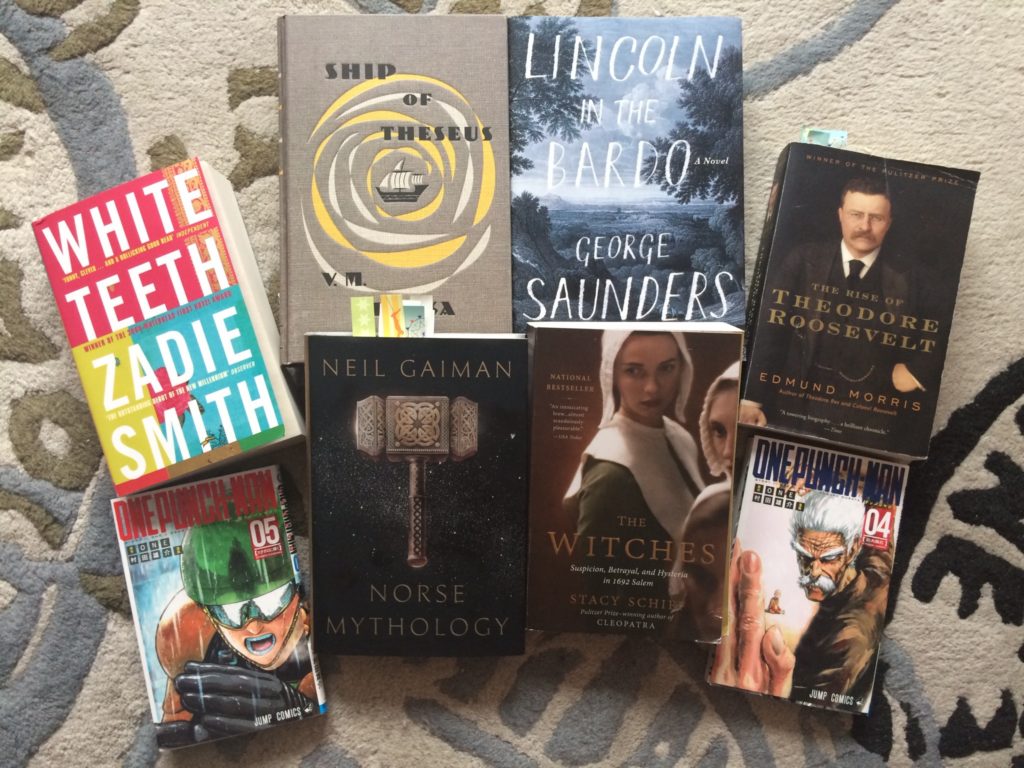
My Reading List For April 2017
I’ve got quite a few books on the go at the moment but I’ve narrowed down this list to just the books that are really exciting me:
- One-Punch Man by ONE
- The Witches by Stacy Schiff
- White Teeth by Zadie Smith
- Norse Mythology by Neil Gaiman
- S. by Doug Dorst and J. J. Abrams
- Lincoln in the Bardo by George Saunders
- The Rise of Theodore Roosevelt by Edmund Morris
In no particular order, let’s blast through them.
S. by Doug Dorst and J. J. Abrams
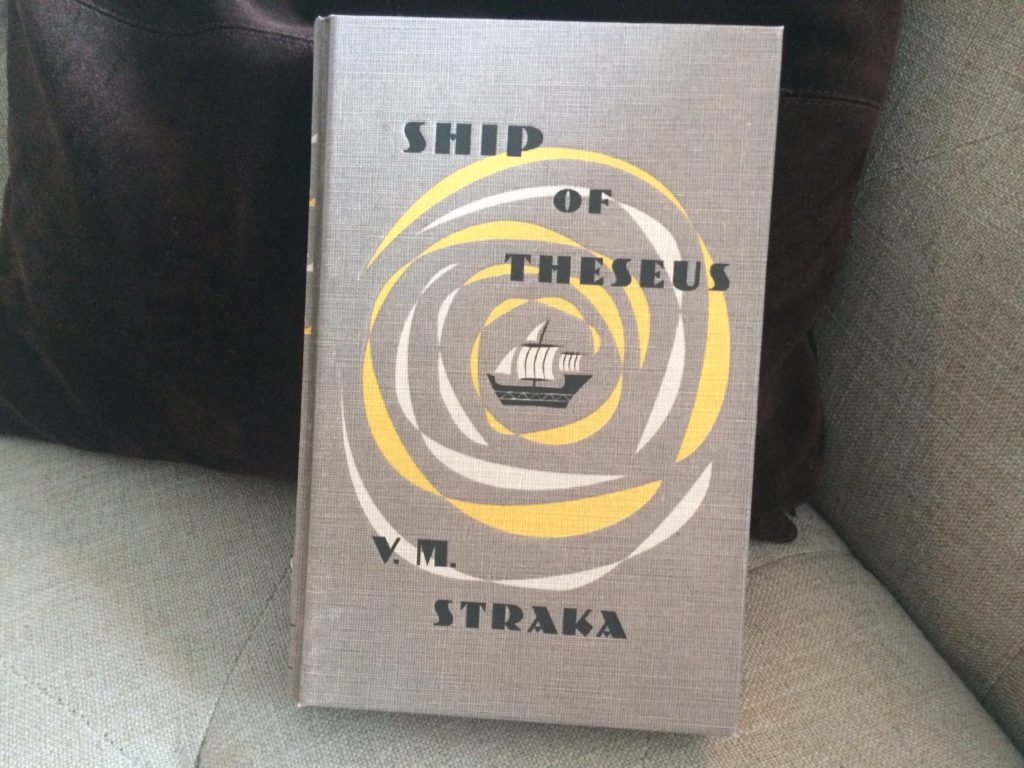
S. by Doug Dorst and J. J. Abrams (the guy who wrote Lost) is one of the – if not THE – most interesting concept/experimental books I have ever read.
How can I begin to describe this book?
It’s not reading. It’s an experience.
Once you take the book out of the box it comes in, any mention of the title being “S” or the authors being Dorst and Abrams are gone forever.
The book is now Ship of Theseus by V. M. Straka.
It looks, smells, and feels like an old book from a university library. You open it up and a bunch of leaflets, newspaper articles, postcards, and other bits and bobs tumble out from the pages.
And the pages themselves? They are COVERED in what looks like handwritten annotations in the margins.
The real story takes place between two characters who have never met. They scribble notes in the margins of this dusty old book and try to unravel the mystery of who the author really was.
It’s an absolutely wild experience and I can’t remember the last time I was so delighted by an experimental form like this.
It also brings back a ton of memories from my own university days when students did indeed have conversations with each other between the pages of dusty old volumes.
White Teeth by Zadie Smith
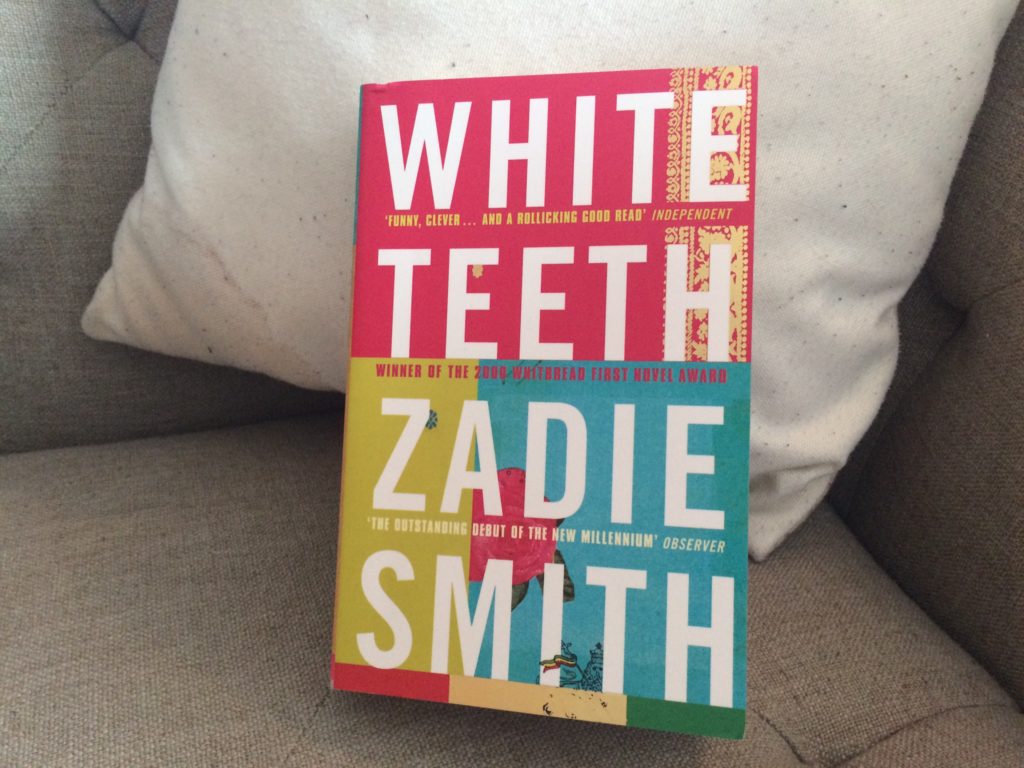
Two things initially struck me after I devoured the first two chapters of White Teeth:
- Why the heck haven’t I read a Zadie Smith novel before?
- How the heck did Zadie Smith write this book when she was just 24?
The prose is gorgeous. More like poetry in many places.
The omniscient authorial style is humorous and strangely comforting (like talking to an old friend) despite the grand themes dealt with.
The characters are immediately and consistently compelling and the idiosyncrasies of their dialects are rendered in beautifully realistic dialogue.
And the pace of the story moves so fast that I have to force myself to slow down to appreciate all the little expertly conceived thematic details scattered throughout
I’m really excited that I have found a brand new author whose body of work I have yet to explore.
Lincoln in the Bardo by George Saunders
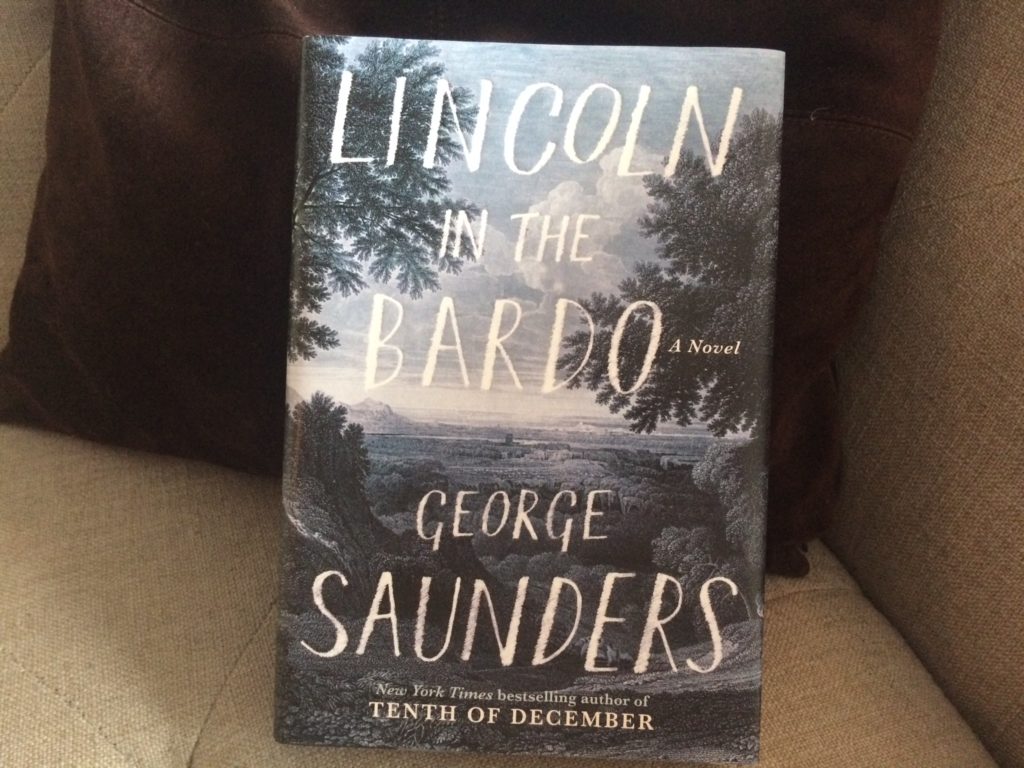
This is the book I was most looking forward to in 2017 ever since it was announced.
I got it the day it came out at a little indie bookstore (gotta support those guys).
There’s a lot of hype surrounding Lincoln in the Bardo and I’ve even heard of bookstores selling out of it and putting people on a waiting list to get it.
Does it live up to the hype?
Yes. In fact it exceeds it.
This is one of the most interesting styles of telling a story I have ever encountered. To try and compare it to other books is to do it a disservice as it can’t be pegged.
It’s basically about the aftermath of the death of Lincoln’s son. Based on historical fact with tons of disparate accounts from and about the Civil War era woven into a narrative that primarily concerns a bunch of spirits that have not passed onto the next world.
I highly recommend you listen to the audiobook as you read because the voice actors are tremendous and it will greatly enhance your understanding and enjoyment of the overall story (which is initially pretty confusing).
I’m trying to read this one slowly because it’s a reading experience that I never want to end.
I’m not going to give any spoilers but I will say that I have laughed and cried because of this book.
Norse Mythology by Neil Gaiman
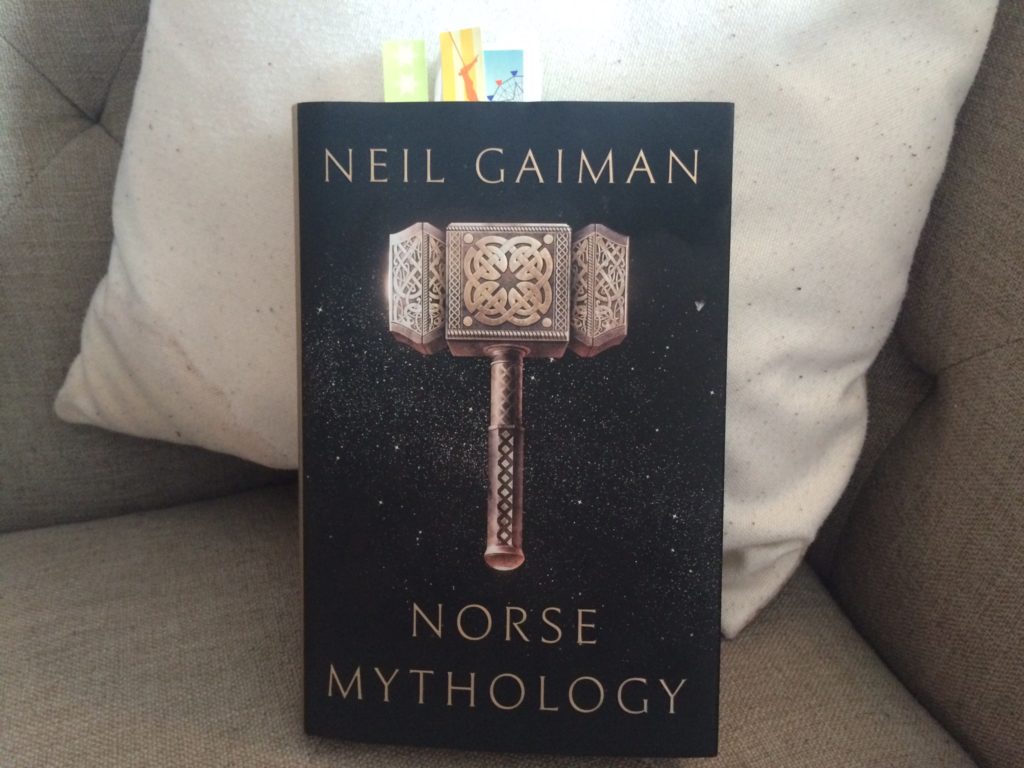
Norse Mythology is another book that was hotly anticipated in 2017. I also picked it up on the day it came out and I also think it easily exceeds the hype that surrounded it.
I have read a lot of mythology books (it’s kinda my thing) but Neil Gaiman’s Norse Mythology is, without a doubt, one of my favourites.
Gaiman credits Crossley-Holland’s rendering of the Norse myths as being a huge influence but I personally prefer Gaiman’s version of the stories.
These are the Norse myths like you’ve never experienced them before. They’re funny. They’re colloquial (in a way only Neil Gaiman could pull off). They’re vivid. And one of Gaiman’s stories makes a perfect nightcap to a long day.
Having devoured and loved every single word in Norse Mythology, I now wish 2 things:
- I wish I could go back in time and have this beautiful book for my university studies.
- I wish Neil Gaiman will write more mythological stuff in the future (pretty please!!)
The Witches by Stacy Schiff
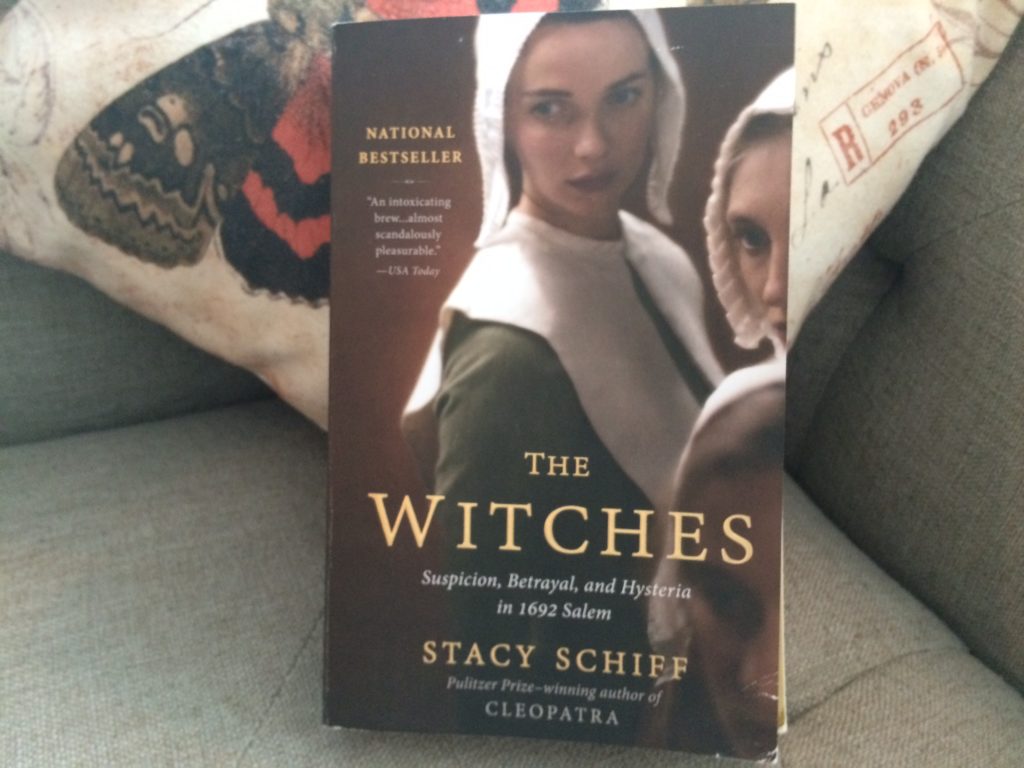
I’m always trying to push myself to read more than my usual fare. So when I saw Pulitzer Prize-winning Stacy Schiff’s book cover-out in my local bookstore, I picked it up and took it home without much consideration.
Everyone’s heard of the Salem Witch Hunts. But how much do you really know about the period of history?
If you said “a lot”, you’re either a scholar on the subject or a bold-faced liar because there is remarkably little (suspiciously so) documented about that period of time.
But Schiff expertly manages to navigate the sparse documentation surrounding this most fascinating time and reveals how a hot-bed of Puritan anxiety and heightened supernatural belief in a new, terrifying world led to one of history’s most bizarre massacres and manias.
I’m only a few chapters in so far but the prose is so perfectly crystallised and the subject matter so alien yet deftly presented that I ache to be able to experience the beginning of the book anew once again.
If you’re a non-fiction writer and Schiff’s prose doesn’t make you swell with envy, you must be a very rare breed of writer indeed.
I would love (and pay good money) to sit down with Stacy Schiff and learn her writing process. How does she go about researching a book? Where did she learn her style? What a fascinating (and selfishly one-sided) conversation that would be.
The Rise of Theodore Roosevelt by Edmund Morris
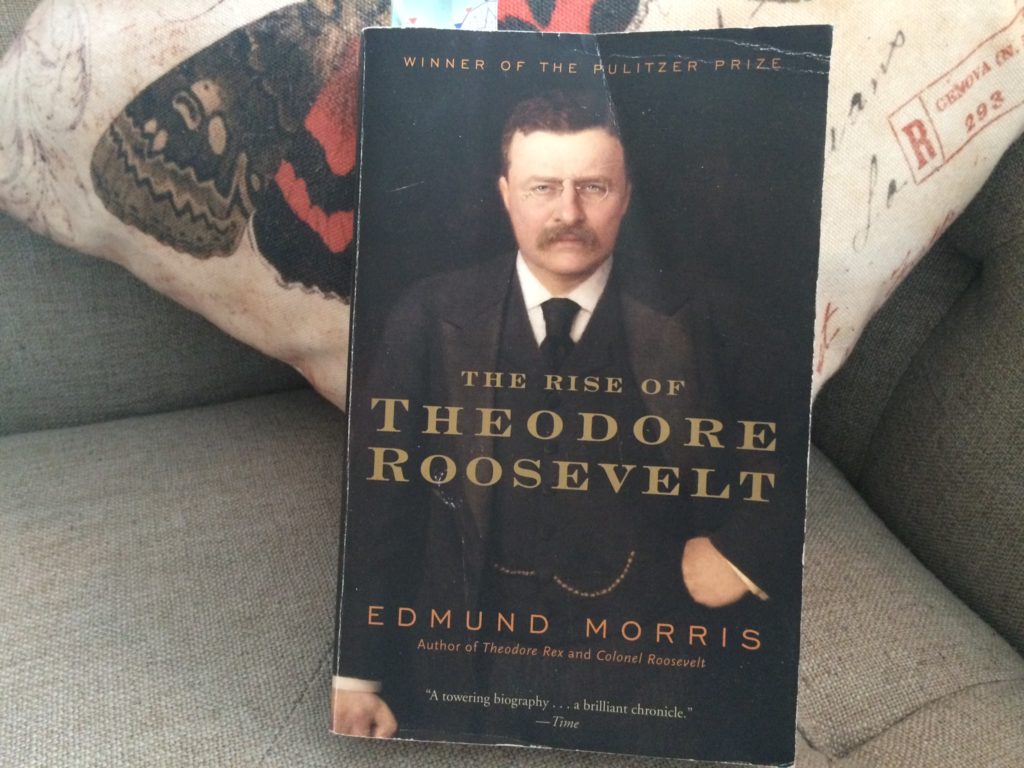
Another Pulitzer-winner here with Edmund Morris’ The Rise of Theodore Roosevelt.
This is a book that I’ve been reading very slowly.
It is very dense, beautifully written, and extremely well-researched. But the main reason I’m reading it so slowly is because I’m fascinated with the subject matter.
Theodore Roosevelt is one of the most extraordinary individuals I have ever read about.
Whenever I’m feeling down or unmotivated, I just look at the book’s cover and see Roosevelt’s steely eyes staring back at me.
I cannot comprehend how anyone can have so much energy – both mental and physical. Especially when they were so disadvantaged from an early age.
Roosevelt’s youth was marred with so many health problems, like extreme asthma, and yet he continued to push himself and break himself down to build himself up over and over again.
He didn’t give a damn that his lungs were weak. If Roosevelt wanted to climb a mountain, he climbed a mountain. In fact, he climbed dozens of them. He devoured (and wrote tons of) books, he led speaking clubs, he wooed the woman of his dreams, and basically led a life that puts us all to shame.
One-Punch Man by ONE
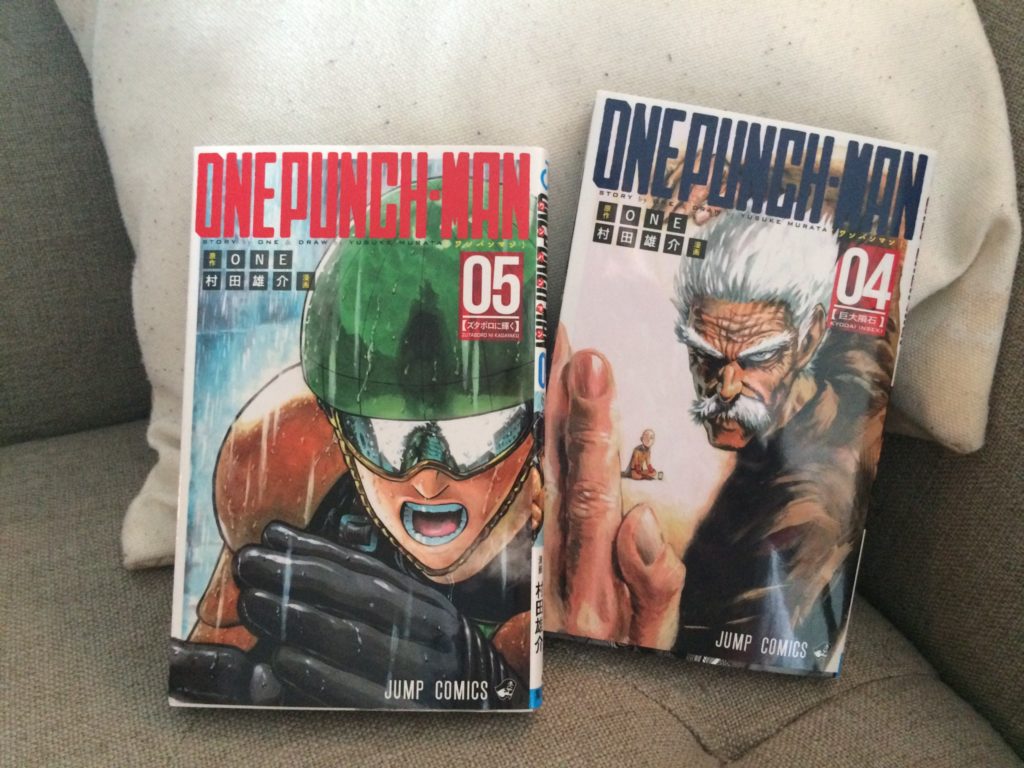
You can’t just read big important books all the time.
It’s important to have some light relief.
That’s where my love of comics (specifically manga) comes in.
I’ve got the whole series of One-Punch Man (a great Christmas gift from my girlfriend) and I’m steadily making my way through the series. I’m reading it in the original Japanese so it’s taking me longer than it would to read the English translation.
One-Punch Man is a heck of a lot of fun.
This series basically takes the Mickey out of the whole superhero genre. I mean, we all know the superhero is gonna defeat the big bad monster in the end, right? So why not just have a superhero who destroys the villains with one punch? That’s One-Punch Man.
It’s a comic where the hero, Saitama, speaks like a normal dude (which is uncommon for a manga hero) but everyone else speaks like a weirdo. There’s a bunch of different monsters and villains constantly terrorising Saitama’s world in hilarious ways and they’re just begging for the good old one-punch.
One of the things I find interesting about this series is the fact that the illustrations are so wonderful and yet the original drawings were terrible. The author is not skilled at drawing but the series took off anyway and when it got more popular he hired someone who could actually draw. That’s a great lesson for any artists who feel held back by a lack of one certain skill. You can still get great success if your core message/premise is a good one. And One-Punch Man’s is.
And that’s what I’m reading at the moment! What about you?
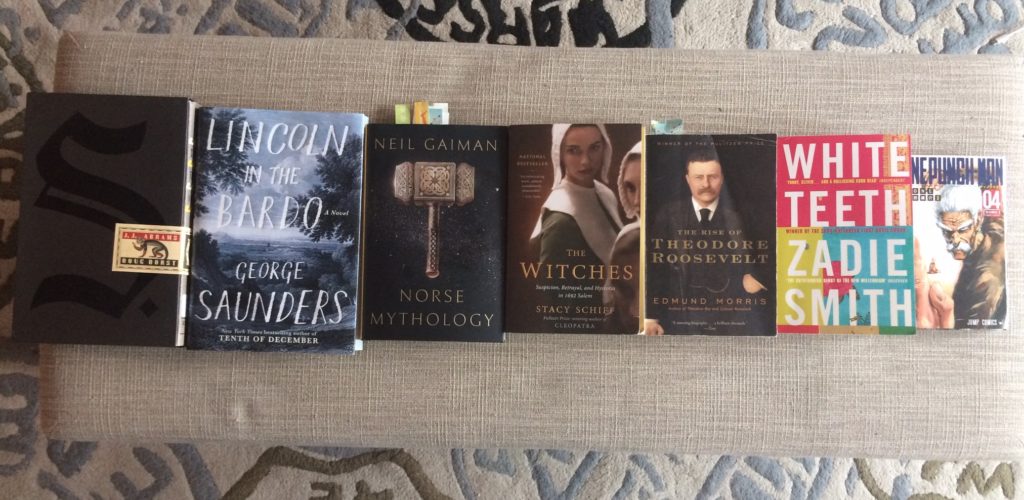
Thanks for the inspiration to get more books into my life! And for confirming that I was a fool to leave my copy of The Rise of Theodore Roosevelt behind when I headed to Australia.
Is it hard to find books in English in Japan?
Why no kindle? (asks a woman who can’t face a kindle…)
P.s. – thanks for the Wim Hof review – it’s how I found your site!
Hi Jema,
Thanks for your comment! Sadly, I had to recently leave my copy of Roosevelt behind too because it wouldn’t fit my weight allowance when travelling. I’ll have to buy it again.
It’s not too hard if you do your shopping on Amazon. But as for actual bookstores, you’d generally have to be in a big city like Tokyo in order to benefit from English sections in bookstores. But it’s not too difficult.
I actually started with my Kindle again but I still much prefer actual books. Mainly I just like getting away from the screen and actual paper makes it feel like I’m reading a real book.
How are you liking the Wim Hof Method? Awesome, isn’t it? 🙂
Amen for real paper and getting away from the screen. Now I don’t feel bad about leaving Teddy and his amazing legacy behind.
Am only doing Wim Hof breathing at the moment. Waiting to buy the course (via you!) until I have more than five weeks in one place. I’m in a new place every few weeks through at least November this year. Feels like it will be hard to be constantly sorting out the resources for ice baths, etc.
But yes – the breathing is rocking my world!